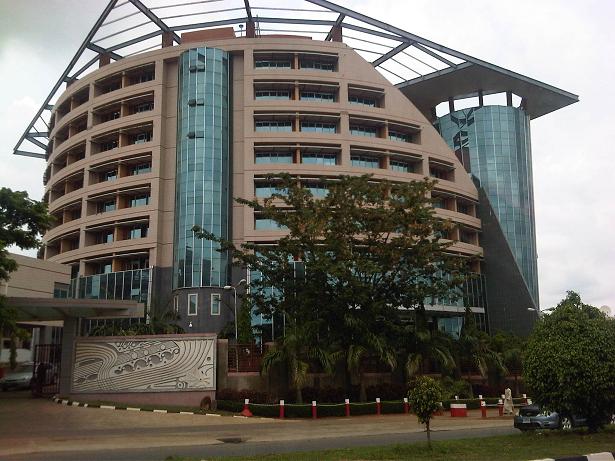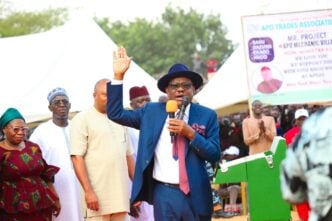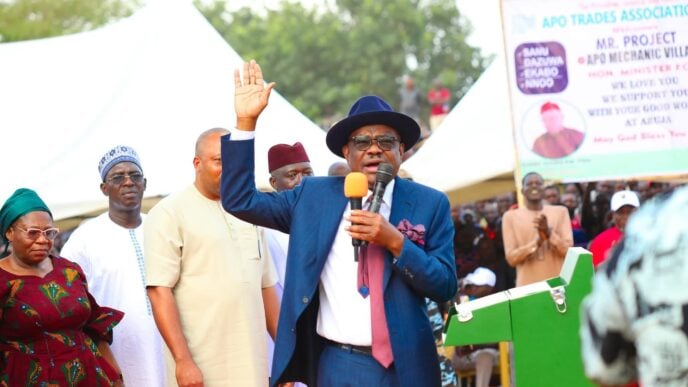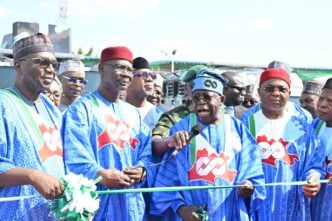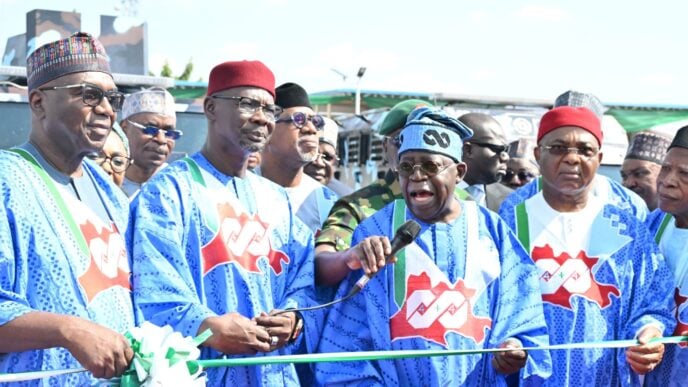There is something that age does to a man. It doesn’t just equip him with more rags than the Millennials, the Gen-Z or the Generation Alpha, as Chinua Achebe would have loved to put it in one of the greatest books ever, Things Fall Apart; age slows down a man and tempers his views with ancient wisdom. Instead of volcanic eruptions at little irritations, age cautions otherwise.
Now when confronted with the actions of some people in high places – private or government, and someone would ask: why would he take such a decision? Instead of a rambunctious response as it would have been a few years ago, I can hear myself saying, he is the chief executive; you are not privy to the information available to him. Being a chief executive doesn’t have to do with age but being in a position to apply expertise and cosmopolitan wisdom in taking informed decisions based on available information.
For this reason, I am the least qualified to ask President Bola Ahmed Tinubu why he has not reconstituted the Board of the Nigerian Communications Commission (NCC)
which is one of the most important agencies in the country. He is the President of Nigeria. Apart from other baskets of worries, he has access to information that may never be made public. But as they say, the buck stops on his table, a slight variation of “the buck stops here,” which was the way former president of the United States, Harry S. Truman audaciously accepted responsibility for his actions and decisions.
The buck stops on President Tinubu’s table and he has not been negligent in taking bold decisions even if some of those decisions impact the people with reverse expectations.
Advertisement
While one will acknowledge that quite a number of boards have been reconstituted since his assumption of office just over two years ago, it is also safe to observe that NCC is clearly and surprisingly missing from the list. Yet the President has his information which may make it difficult for anybody to question his reluctance and, not failure, to do so. Whatever that information may be, this is a humble reminder that the NCC is a vital organisation whose activities, in terms of last-mile benefits, impact almost everybody and all sectors of the economy.
The status of the NCC at the moment is that it has three Executive Commissioners – Dr Aminu Maida, the Executive Vice Chairman (EVC) who is also the Chief Executive Officer, Engr Abraham Oshadami, Executive Commissioner, Technical Services (ECTS), and Rimini Haraya Makama, Executive Commissioner, Stakeholder Management (ECSM). All three were appointed by President Tinubu but the Communications Act expects more.
The entire communications industry of which the NCC is the regulator, rests on the solid pillars of the Nigerian Communications Act 2003. The Act details the constitution of a Board with a five year tenure for the members.
Advertisement
The Act in Section 5 says there is established for the Commission a Governing Board charged with the administration of the affairs of the Commission. The Board Commissioners shall be persons of recognised standing, qualification and experience in one or more of the following fields – finance or accounting, law, consumer affairs, telecommunications engineering and information technology, among others.
The Board shall have capacity to make standing orders for the regulation of its proceedings and meetings howsoever and acts of the Board shall be deemed to be acts of the Commission.
The Board shall consist of 9 Commissioners made of – the chairman, a chief executive who shall also be the Executive Vice-Chairman (EVC), 2 Executive Commissioners and five non-executive Commissioners. But at any particular time, it must have 6 Commissioners serving on the Board, which shall be drawn from the 6 geo-political zones of the country subject to the approval by the Senate.
The foregoing is an abridgement of the relevant sections of the Act for the purpose of this material. However, the Act also states very clearly that not even the President can remove a board member without being given an opportunity for a defence in case of misconduct and cannot also sack an Executive Commissioner without a recourse to the National Assembly.
Advertisement
Things took a drastic turn at the NCC in 2015 with the coming of the APC government headed by President Muhammadu Buhari. The organisation was a major target. The Board members were swept away without being accorded any little respect in deference to their contributions to building an industry, and without recourse to the Act, even when their tenure had recently been renewed. The APC action violated the Act. That intrusion nearly torpedoed the system if it wasn’t well managed.
It doesn’t come with any surprise therefore that with the coming of President Tinubu, the Board was again dissolved along with so many others, even though the NCC Act states otherwise. Those who harassed their predecessors out of office were now given a little dose of their illegitimate action. This appears to be the APC tonic for the telecommunications industry, but this tonic doesn’t invigorate at all; instead it has the reverse effect, putting the industry into uncertainty or what my friend, may God bless his soul, would have called a state of hugger-mugger.
I write with some level of certainty that the three Executive Commissioners, led by the EVC, are trying their best to pick up the pieces of a regulatory institution that was nearly in ruins, but even at their best, the Board is still expedient, not only for performance but even for representation, a hallmark of democratic governance.
An industry insider told this writer that President Obasanjo followed the letters of the Act when he appointed members of the NCC Board in 2000 as primary agents of change in the industry. Writing in June 2023, under the topic: Sustaining the revolution in Nigeria’s communications sector, Dr Tony Ojobo, a pioneer staff and latter a Director at the Commission, listed some members of the Board as follows:
Ahmed Joda, renowned technocrat, Chairman; and Engr Ernest Ndukwe, former President of the Association of Telecommunications Companies of Nigeria (ATCON), technocrat and astute engineer, as the executive vice chairman and chief executive of the Board. Others include: Engr Olawale Ige, a former Minister of Communications, Engr Austine Otiji, a former managing director, who turned NITEL into a productive business entity, Engr Patrick Kentebe, Engr Shola Taylor, Engr Isaiah Mohammed, Engr Zimit, and Engr Don Udeh, among others.
Advertisement
The team was selected based on competence and track record, and a readiness to take even a hazardous dive to give President Obasanjo the needed result.
“Ahmed Joda’s Board understood the enormity of the responsibility placed on them and set out to build one of the most respected regulatory bodies in the world. The Board embarked on extensive consultations worldwide with regulators such as the Federal Communications Commission (FCC) in the United States of America and other regulatory bodies worldwide. The Commission also approached the World Bank for assistance and support. It engaged the services of consultants such as Deloitte & Touché, Detecon GmB of Germany, USAID, and Growing Businesses Foundation, among others, to assist with building a strong, independent regulatory body for the communications sector.
Advertisement
As can be seen from the foregoing, there is a reason a Board is important to agencies like the NCC. It brings form, substance and structure to the operations of the agency. A good Board serves as a buffer and shields the agency from regulatory capture.
The pioneer Board of NCC under Joda built an industry whose structures still hold forth today despite noticeable intimidations under the previous administration. Members made convivial collegiate contributions of knowledge to excite the industry and made Nigeria a telecom haven. The succeeding Board tried to build on the structure until decline and near anarchy intruded, although an NCC source would insist that the Joda era was the last Board of technocrats.
Advertisement
But speaking to this writer, an industry source appealed to President Tinubu to urgently reconstitute the Board of the NCC.
“The industry is so important that the Board must be reconstituted now and populated by high calibre people who are stars in their own right. Such appointment should not be based on political gratifications but professionals in various fields of endeavour,” the source advised.
Advertisement
One other thing. Without a Board, a meddlesome Ministry of Communications, Innovation and Digital Economy can overwhelm the regulator and put investment in the sector in great jeopardy. I am not saying that is happening at the moment but, sometimes, power can inebriate more than the strongest wine.
Even with all their aggregated brilliance, the three Executive Commissioners at the NCC need some help; they need the profound well of experience, expertise and empathy of other well-meaning individuals who are qualified for a Board appointment in a regulatory agency, not the kind of politician that wears avarice as rubric.
President Tinubu has information that is not available to the rest of us which makes it impossible to question some of his actions and decisions. But such information should be deployed to the overall good of the people. The NCC needs a Board urgently. Further delay could hurt the telecommunications industry in the long run.
Views expressed by contributors are strictly personal and not of TheCable.

